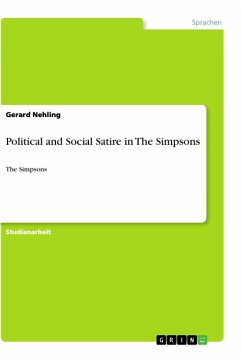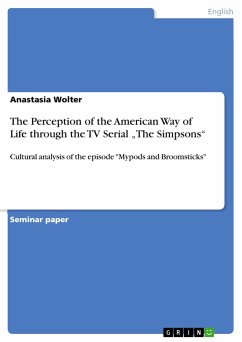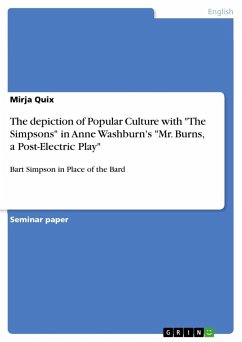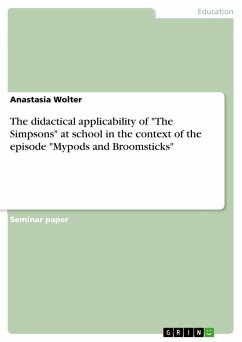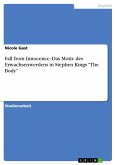Studienarbeit aus dem Jahr 2006 im Fachbereich Didaktik - Englisch - Sonstiges, Note: 1,3, Eberhard-Karls-Universität Tübingen (Englisches Seminar), Veranstaltung: Landeskunde: Britain and Europe, Sprache: Deutsch, Abstract: The following essay will explore political and social satire in The Simpsons. This essay will prove Homer Simpson wrong saying in the episode "Mr. Lisa Goes to Washington": "...cartoons don't have any deep meaning. They are just stupid drawings that give you a cheap laugh". In this essay it will be argued that The Simpsons provides us with an in-depth satirical reflection on U.S. society and, to a certain degree, on Western societies in general. Furthermore, this essay will examine the view of creator Matt Groening and the other writers of The Simpsons that the programme skilfully incorporates the subtext that "[t]he people in power don't always have your best interest in mind" (Cantor 1999, p. 745). Armstrong (2005a, p. 11) emphasises in his article about "Satire as Critical Pedagogy" that satire is a vehicle through which political literacy will be developed and underlines that it is an important part of political education. Thus, the analysis of satire is a vital part of cultural studies and is accordingly examined in this essay.

